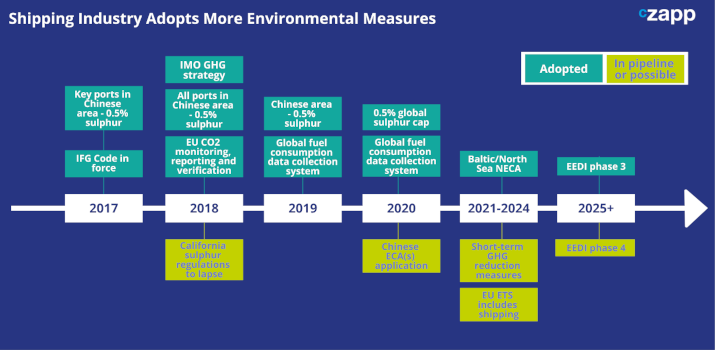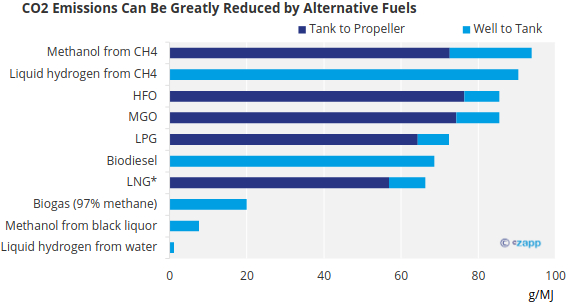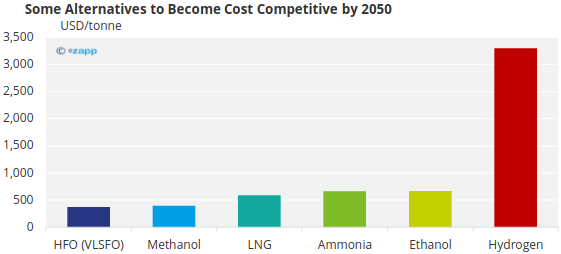Insight Focus
- The shipping industry currently uses about 300 million tonnes of fossil fuels.
- Something must change if the industry is to meet its strict environmental targets.
- In this series, we examine the main contenders and how market share could expand.
Shipping Industry Faces a Mammoth Task
The shipping industry is under pressure to reduce its emissions. There are several adopted measures to 2025 and beyond that put pressure on shipowners to reduce emissions significantly.

Up until now, these targets have been met in several ways, such as installing scrubbers, slow steaming, making engine improvements and optimising water flow. But as targets become stricter and stricter, eventually the industry will have to move toward an alternative fuel.
This is easier said than done given that the industry currently uses 300 million tonnes of fossil fuels every year to power its ships. But so far, several contenders have emerged.

Source: DNV
At first glance, options such as liquid hydrogen and methanol seem to be the best options for the industry, given low CO2 emissions. However, there are several other factors to consider, including existing infrastructure, vessel characteristics, cost and other emissions, such as SOx and NOx.

Source: IMO
Throughout our alternative fuels series, we will take a look at the penetration, benefits and disadvantages of the main alternative fuel options, which are:
- LNG
- Methanol & Biomethane
- Biofuels
- Green Ammonia
- Hydrogen & Fuel Cells








